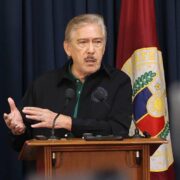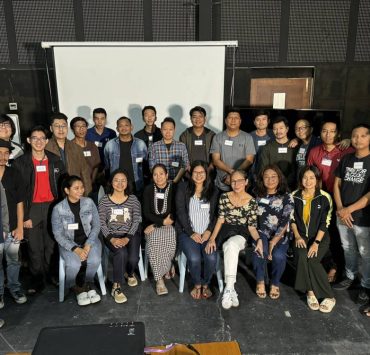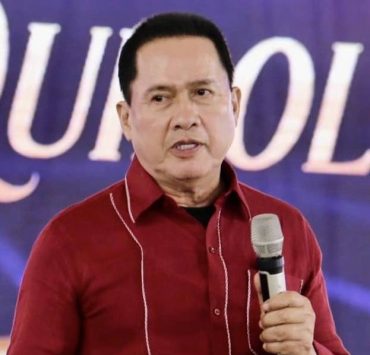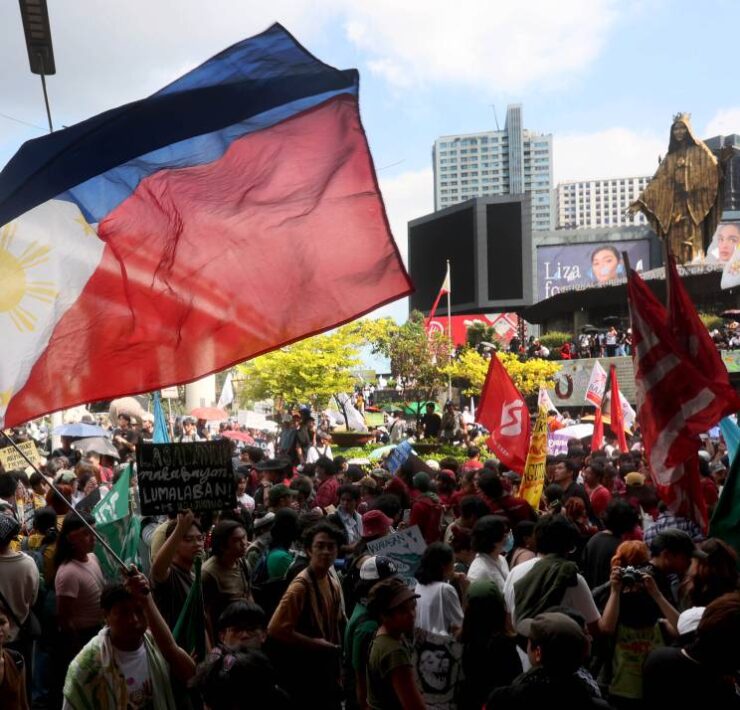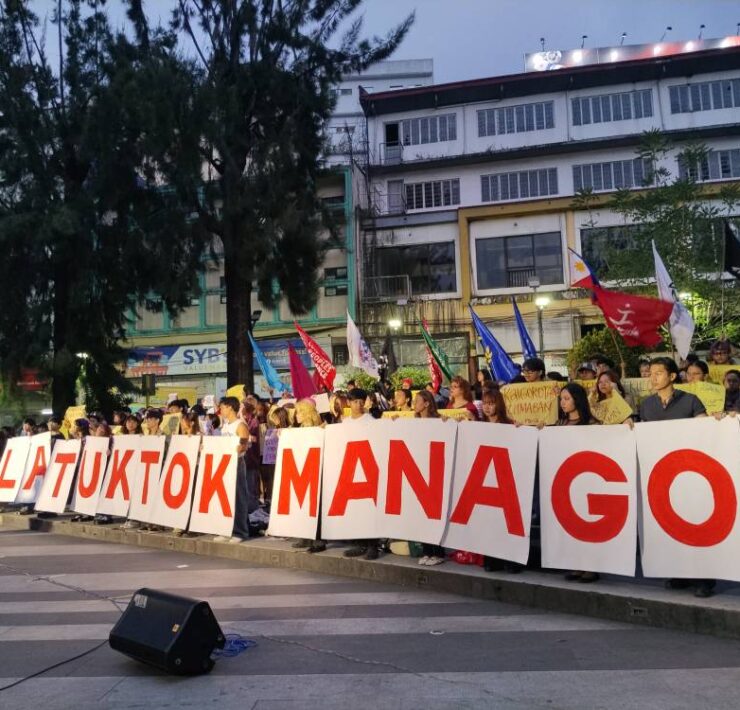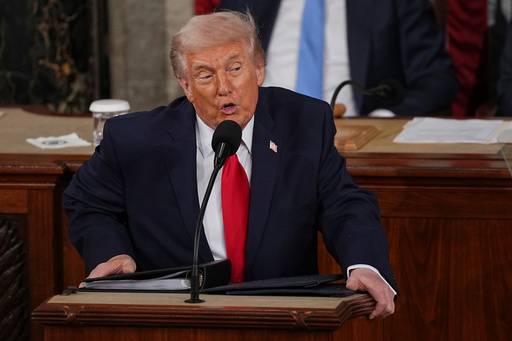‘Huge savings’ if Cha-cha held with ’25 polls–Marcos
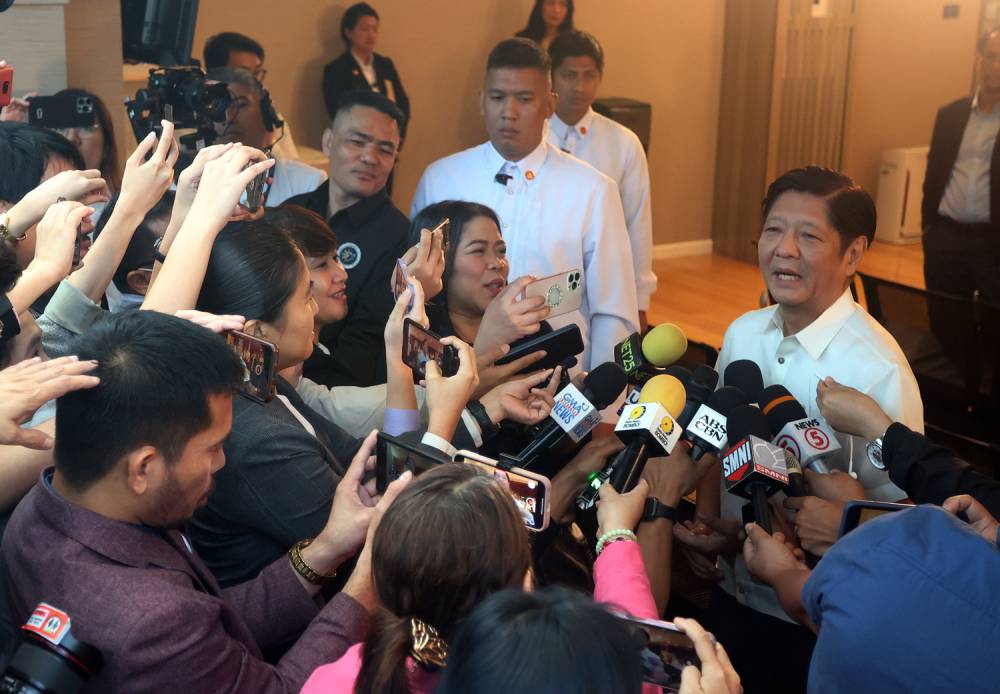
President Marcos said on Wednesday that conducting at the same time the 2025 midterm elections and the plebiscite to ratify proposed amendments to the 1987 Constitution would result in “huge savings” for the government.
“We are really studying it, because if we will hold the elections and the plebiscite separately, that’s like two elections. It’s too costly,” he told reporters on Wednesday morning.
“So we might consider holding the plebiscite along with the elections in May next year. That’s a big deal, it will mean huge savings for us. So we are studying it thoroughly,” Mr. Marcos noted.
The Chief Executive made the remarks shortly before flying to Canberra, Australia, for a two-day state visit where he is expected to sign several deals and address Australian lawmakers.
The President pointed out that there might be some legal consequences in conducting the two political exercises together, hence the thorough study of the proposal.
“A plebiscite is slightly different, it is different from an election. So if we are able to incorporate the two exercises together, I think it would be a great help as a practical matter,” he said.
Asked about the House of Representatives’ target of holding a plebiscite to ratify the amendments by July this year, the President said he would talk to Speaker Martin Romualdez, his cousin, about it.
“It doesn’t mean that a plebiscite should be held immediately after the House or Senate finishes it. We can wait a little longer to hold the plebiscite at the same time as the elections,” he said.

“We are studying it and I think there’s a potential there that we can possibly exploit. A plebiscite is almost like an election. So if you conduct an election then a plebiscite, it’s very hard also to have a plebiscite before the election because it might mess up the preparations for the polls. We have to take all of these things into account, and I think we’ll come to a good solution,” the President said.
Lawmakers agree
House Deputy Majority Leader Neptali Gonzales II agreed with the President.
At a press conference on Wednesday, Gonzales said he saw nothing wrong in holding the plebiscite simultaneously with the 2025 elections, pointing out in mixed Filipino and English: “There’s no problem with that. In fact, it’s very practical and very economical… You’re only going to place yes or no (on the ballot) so there’s no additional cost.”
He said that Resolution of Both Houses (RBH) No. 6 and No. 7, once approved by the Senate and the House, respectively, should be finalized and be with the Commission on Elections (Comelec) by November or December if the plebiscite was to be held together with the 2025 elections.
Based on the 1987 Constitution, the Comelec is mandated to schedule a plebiscite not earlier than 60 days but not later than 90 days once it receives an approved amendment to the Charter, according to Gonzales, the floor leader at the Committee of the Whole House deliberating on RBH 7.
Senate President Juan Miguel Zubiri on Wednesday also agreed that synchronizing the plebiscite on Charter change (Cha-cha) with the elections next year would be a prudent move for the government.
“With limited resources and competing priorities, it is imperative that we maximize every peso spent to address the most pressing needs of our citizens,” said Zubiri, who earlier disclosed that the President also preferred to hold the two political exercises at the same time.
P13-B additional expense
On Tuesday, Comelec Chair George Erwin Garcia said the agency was in favor of holding the plebiscite and elections at the same time as conducting these separately would need as much as P13 billion in additional expenses.
“[This] is a significant amount that could be allocated [to fund] critical infrastructure projects and social programs that will benefit our nation,” Zubiri said in a statement.
The amount, he pointed out, could be allotted to build some 5,200 classrooms for students or “allocated to various other programs aimed at improving the lives of Filipinos, such as poverty alleviation initiatives, agricultural development projects or infrastructure improvements in rural areas.”
Sen. Juan Edgardo Angara, who was tasked to lead the Senate deliberations on Charter change, said they still have sufficient time to discuss the planned constitutional revisions under RBH 6.
Angara said the Senate subcommittee on constitutional amendments and revision of codes should wrap up its hearings in October.
However, he said his colleagues should brace themselves for possible legal challenges in the Supreme Court.
“That’s certain since this is the first time that we will do it and because there are ambiguities in the 1987 Constitution… there will be plenty of debates,” Angara said.
But for opposition Sen. Risa Hontiveros, having a plebiscite to rewrite the country’s fundamental law would not be good for the country at anytime.
“I think it’s a bad idea any which way they want to hold it,” Hontiveros said in a press briefing.
“I’m against Charter change, whether it’s on economic or political provisions, whether through a ‘fake people’s initiative’ or this process of ‘constituent assembly,’” she stressed.
Pending issues
Meanwhile, Sen. Francis Escudero reminded his colleagues that the rules of the Senate did not contain specific guidelines on how to tackle resolutions seeking to revise the Constitution.
As previously raised by Hontiveros, he said this issue should be resolved immediately since Angara’s panel was already holding hearings on RBH 6.
“If, for example, we follow or take the position that there has to be a joint session (of Congress) and that separate sessions are not allowed, then clearly we are just wasting our time,” Escudero said during their regular plenary session.
Gonzales also hammered home their intention to pass RBH 7 “like a normal bill,” as he expressed his belief that it would be “impossible” for both the Senate and the House of Representatives to meet amid its ongoing tiff.
During Tuesday’s hearings—which wrapped up at 8 p.m.—Gonzales also acknowledged the possibility that other members of Congress might still introduce other amendments not mentioned in RBH 7, “subject to the approval of the committee.”













